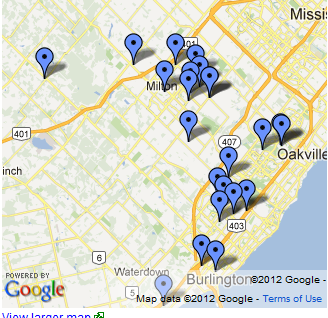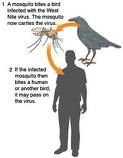BURLINGTON, ON August 30, 2012 The West Nile virus is still very much with us. The Halton Region Health Department reminds residents to continue to cover up, use insect repellent with DEET, and keep mosquitoes out of homes.
The mosquito trapping done by the Regional health staff has found mosquitoes positive for West Nile virus (WNV) for five consecutive weeks. Laboratory test results over the last three weeks bring the total of human infections with WNV in Halton to nine: seven in Burlington and two in Milton.
Two of the Burlington cases were persons who did not have symptoms but were identified during routine testing as part of the blood donation process.
“The risk of infection will be present until temperatures cool significantly, so it is important to protect yourself from mosquito bites and remove areas of standing water where mosquitoes breed,” said Dr. Monir Taha, Associate Medical Officer of Health for Halton Region.
Mosquitoes can transmit WNV to humans after becoming infected by feeding on the blood of birds carrying the virus. About 80% of people who become infected with WNV do not experience any illness, while about 20% will develop West Nile fever.
Less than 1% will develop inflammation of the brain or its lining, or a type of paralysis. That’s a nice number – until you realize that you’re one of the one percent.
Older adults and people with underlying illnesses should be particularly cautious as they are more likely to develop the illness. The following are steps that residents can take to protect themselves and their families from mosquitoes:
Cover up. Wear light-coloured, long-sleeved shirts and pants with tightly-woven fabric.
Avoid being outdoors from early evening to morning when mosquitoes are most active and likely to bite, as well as at any time in shady, wooded areas.
Reduce mosquito breeding sites around your home by getting rid of all water-filled containers and objects. Change the water in bird baths at least once per week.
Use an approved insect repellent, such as one containing DEET.
Make sure your window and door screens are tight and without holes, cuts or other openings where mosquitoes could enter your home.





















